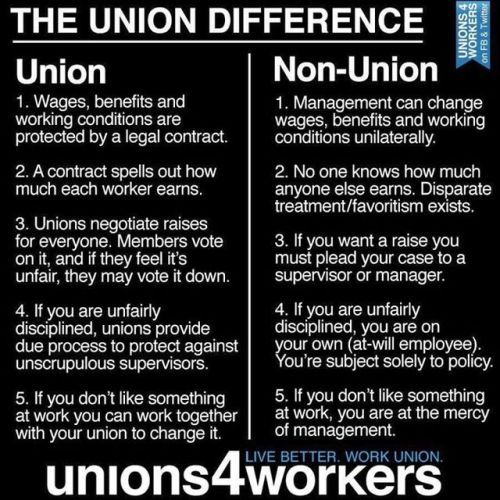Unionize Nursing Home Workers
Unions = Safety
The Skilled Nursing News reported that labor unions improve safety in nursing homes. Labor unions play an important role in improving workplace safety. A new study found that industry-wide unionization would save 8,000 fewer resident deaths.
This true for nursing homes especially during the COVID-19 pandemic. Health Affairs published a study showing that unionized workers are associated with lower infection rates and resident mortality.
More Registered Nurses
Unionized facilities had higher registered nurse (RN) staff-to-resident hour ratios. More registered nurses means more qualified assessments and accurate care planning. This is better than allowing LPNs or licensed practical nurse work outside their scope of expertise and practice.
Giving nursing home workers a free and fair choice to join a union creates better pathways to good-paying jobs for nursing home workers. Labor unions recruit, retain and transition workers into long-term care careers. Facilities without unions may be especially vulnerable to poor outcomes for patients and workers. Unfortunately, the South has the lowest percentage of union nursing homes workers. South Carolina being the lowest. Of course.
SEIU and other labor unions have advocated for policies that decrease worker infection risk, including paid sick leave, access to personal protective equipment, surveillance testing and the isolation of infected residents. Meanwhile, 20% of their fellow caregivers have potentially unwarranted medical exemptions and religious exemptions.
Currently, data shows that around 1.7 million out of 1.9 million nursing home workers across more than 15,000 facilities have been fully vaccinated. The overall vaccination rate in this group grew from 65% in September 2021 to 89% in late March. However, that is misleading. According to CDC data, one-in-six nursing homes have fewer than 75% of their workers vaccinated against Covid-19.
As of late March, almost 20,000 nursing home workers use medical exemptions to avoid the vaccine.
In South Carolina, 63.2 percent of people who are eligible for the vaccine have received at least one dose, and 54.6 percent of eligible residents are considered fully vaccinated against the coronavirus.



Recent Comments